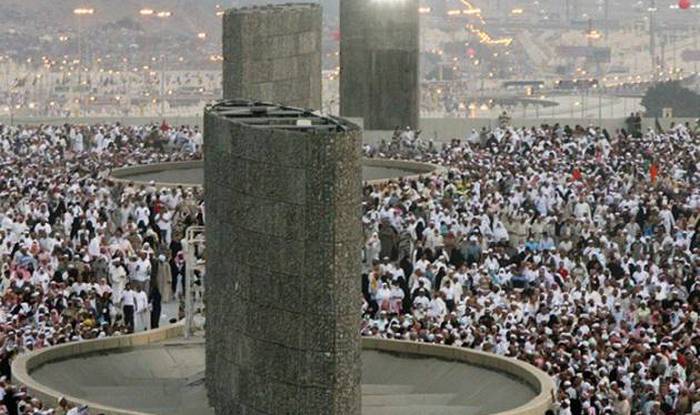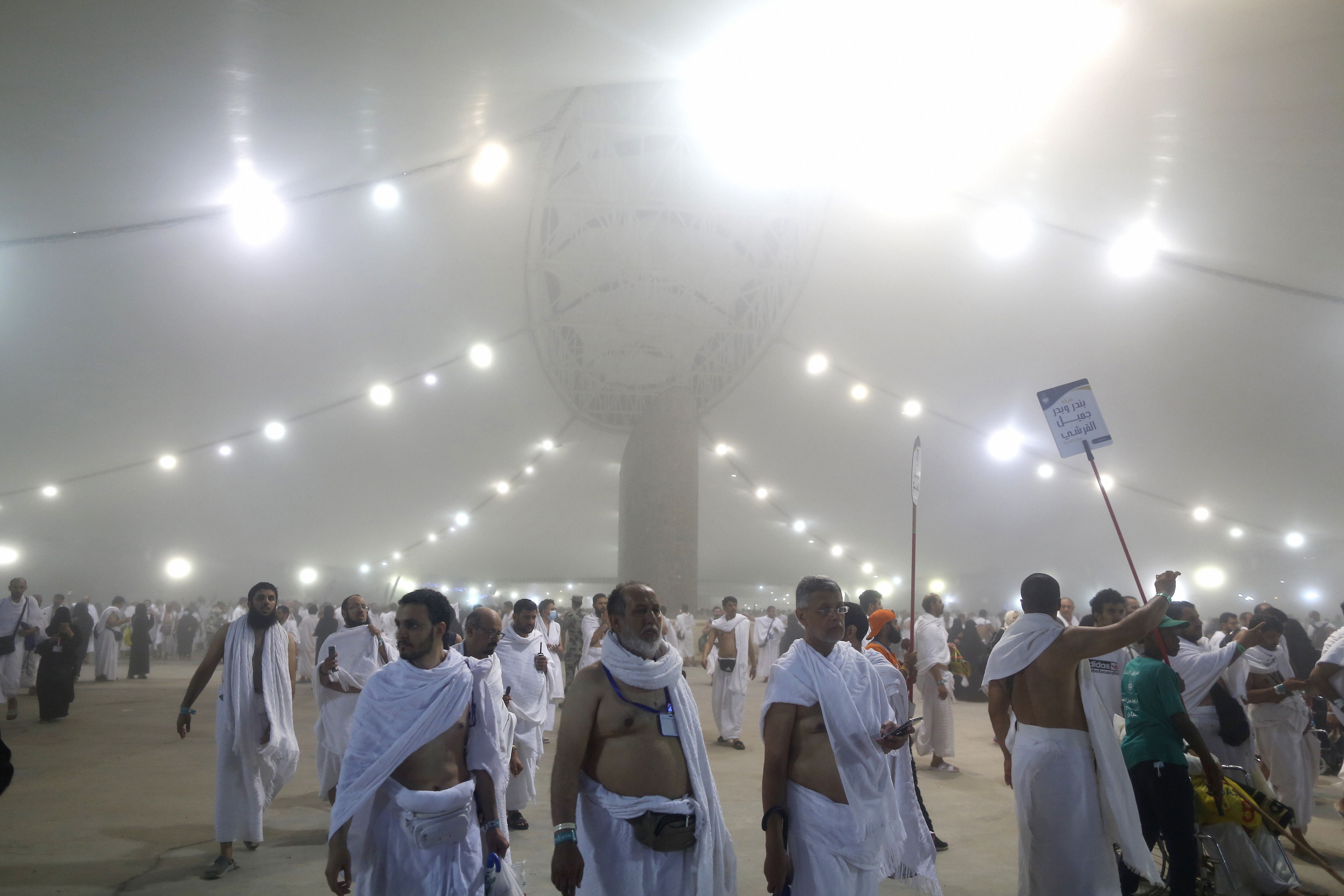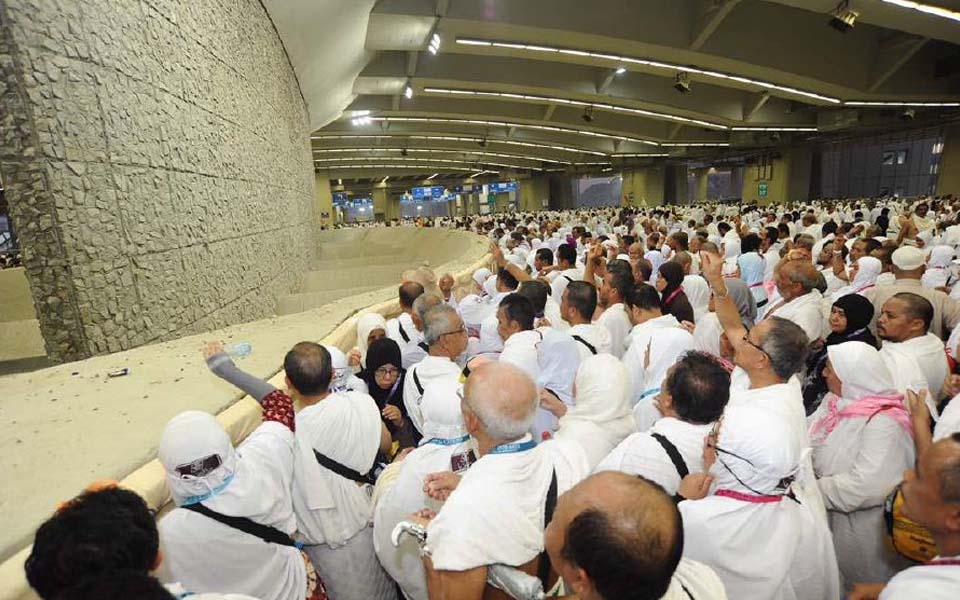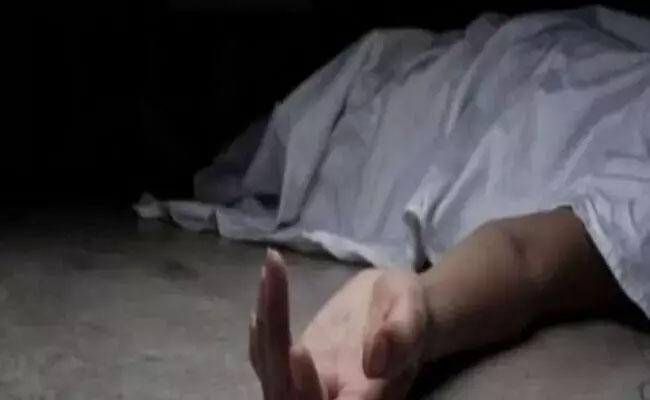Mina, Aug 11: Almost 2.5 million Muslim pilgrims took part Sunday in the "stoning of the devil", the last major ritual of the annual hajj pilgrimage and one that has in past years led to deadly stampedes.
Carrying pebbles in the scorching heat, worshippers made their way across Mina Valley near Mecca in western Saudi Arabia to symbolically "humiliate" the devil.
Under the watchful eyes of security forces, waves of pilgrims clad in white threw seven stones each at a pillar symbolising Satan.
"It is hot, I drink a lot of water and I am still hidden under my umbrella," said Jaker Akjar, a 48-year-old Indian pilgrim, sporting a henna-dyed beard.
This was Akjar's first hajj, one of the five pillars of Islam that every Muslim is required to complete at least once in their lifetime if they are healthy enough and have the means to do so.
Muslim tradition holds that pilgrims must throw seven stones each at a pillar representing Satan on the first day of Eid al-Adha, following two days of prayer and meditation.
"I am well equipped and ready" to fight the devil, said Umar, a 33-year-old Saudi engineer, carrying pebbles in a plastic bottle.
The hajj, one of the world's largest religious gatherings, this year officially drew 2.49 million pilgrims to Islam's holiest sites in Saudi Arabia.
And the stoning ritual is not without risk, as millions of pilgrims converge on a tight space and the pebbles often miss their mark amid the screams of worshippers.
Mina has been the site of deadly stampedes such as in 2015 when more than 2,300 pilgrims crushed or suffocated to death.
Authorities have since reinforced safety and security measures.
Tens of thousands of security forces, including police and civil defence, have been deployed for hajj, according to Saudi authorities.
Ambulances are mobilised to assist the faithful, cameras follow their movement, helicopters constantly fly over this valley of white tents that only comes alive once a year during the hajj.
Large fans sprayed water over the crowd amid soaring temperatures.
Saudi Arabia's King Salman made the trip to Mina on Saturday and was seen on state-run television observing worshippers from the window of a high-rise.
"We pray to Allah almighty to... accept their pilgrimage and worship," he tweeted on Sunday, which marked the beginning of Eid al-Adha, the festival of sacrifice.
Muslims traditionally slaughter sheep for the three-day holiday in tribute to Prophet Abraham's sacrifice of a lamb after God at the last moment spared Ishmael, his son.
They consume some of the meat and give the rest to poor people unable to buy food.
Pilgrims can purchase coupons from the Saudi government, which organises the slaughter and freezing of the meat to avoid public health problems.
After the stoning ritual, pilgrims return to the Grand Mosque in Mecca to perform a final "tawaf" or circling of the Kaaba.


Let the Truth be known. If you read VB and like VB, please be a VB Supporter and Help us deliver the Truth to one and all.
New Delhi (PTI): West Bengal Chief Minister Mamata Banerjee has filed a petition in the Supreme Court against the ongoing Special Intensive Revision (SIR) of the electoral rolls in the state, sources said on Sunday.
The petition names the Election Commission (EC) and the chief electoral officer of West Bengal as respondents. It was filed before the apex court on January 28, the sources said.
Banerjee arrived in Delhi on Sunday. She is scheduled to meet Chief Election Commissioner (CEC) Gyanesh Kumar at 4 pm on Monday to discuss the ongoing SIR exercise in West Bengal. The Trinamool Congress (TMC) supremo would be accompanied by a delegation of party leaders.
She is also likely to meet party MPs in the Parliament House on Monday.
Talking to reporters at the Kolkata airport before leaving for the national capital, Banerjee claimed that the ruling Bharatiya Janata Party (BJP) at the Centre is resorting to the SIR exercise because it is certain of its imminent defeat in the West Bengal Assembly polls, due in a few months, and said the saffron party should contest the election politically and democratically.
The West Bengal chief minister has written several letters to the CEC, raising concerns over the conduct of the exercise.
In her most recent letter to the CEC on January 31, she alleged that the methodology and approach of the exercise went beyond the provisions of the Representation of the People Act and the relevant rules, causing "immense inconvenience and agony" to citizens.
Earlier, TMC leaders, including Rajya Sabha MPs Derek O'Brien and Dola Sen, had moved the apex court, challenging certain aspects of how the SIR is being carried out in West Bengal.





